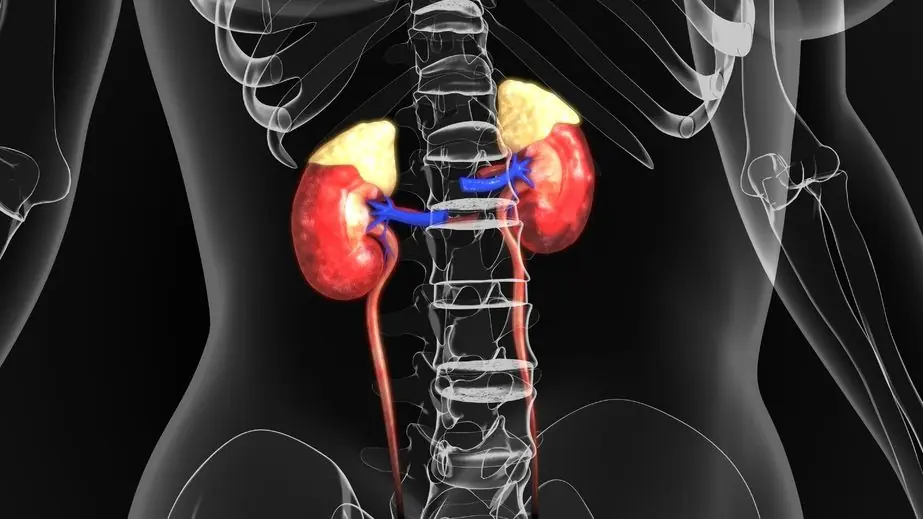
The five shocking things that happen to your body once you stop taking Ozempic
 Ozempic: The Controversial Drug That’s Reshaping Weight Loss and Diabetes Treatment
Ozempic: The Controversial Drug That’s Reshaping Weight Loss and Diabetes Treatment
By Ellie Kemp
Unless you’ve completely unplugged from the world over the past year, chances are you’ve heard of Ozempic. The drug has dominated headlines, become a social media phenomenon, and sparked debates among health professionals and everyday users alike.
Initially developed as a treatment for Type 2 diabetes, Ozempic—whose active ingredient is semaglutide—has surged in popularity for an entirely different reason: weight loss. Its ability to suppress appetite and help regulate blood sugar levels has turned it into a pop-culture staple, with celebrities and influencers alike embracing it. The likes of Oprah Winfrey, Sharon Osbourne, Amy Schumer, and Rebel Wilson have all admitted to trying it, adding to its allure.
Off-label Use and Celebrity Endorsement
Despite its growing reputation as a slimming aid, Ozempic has not been approved by the U.S. Food and Drug Administration (FDA) for weight loss. Its primary function remains to assist in managing blood sugar for patients with Type 2 diabetes. However, this hasn’t stopped many people—celebrities and the general public—from using it off-label to shed pounds.
Other similar drugs, including Wegovy (also semaglutide), Zepbound (tirzepatide), and Saxenda (liraglutide), are FDA-approved specifically for weight loss. But Ozempic remains the most widely recognized, likely due to its strong brand presence and celebrity associations.
What Happens When You Stop Taking Ozempic?
Dr. Robert Kushner, a professor and director of the Center for Lifestyle Medicine at Northwestern University Feinberg School of Medicine in Chicago, spoke to Everyday Health about the physiological shifts that occur when someone stops taking the drug.
1. Side Effects Subside
Many users report uncomfortable side effects while on Ozempic—nausea, bloating, dizziness, and even diarrhea. Dr. Kushner notes that these can sometimes be managed with dietary changes, such as reducing fat intake and eating smaller portions. However, stopping the drug typically eliminates these issues altogether.
2. Appetite Returns
The appetite-suppressing effect of Ozempic ends once the drug is discontinued. “If the patient experienced a reduction in appetite and body weight due to consuming fewer calories, their appetite will increase back to baseline once they stop taking the medication,” Dr. Kushner explains. This makes it significantly more difficult to maintain a calorie-restricted diet.
3. Weight Gain Is Common
Naturally, a returning appetite can lead to weight gain. Without the support of the drug, many users find it challenging to resist overeating. Dr. Kushner emphasizes that medication should be used alongside sustainable lifestyle changes, such as improved diet and regular exercise, in order to retain long-term health benefits.
4. Ozempic Face and Body Reversal
One of the unexpected cosmetic downsides of rapid weight loss from Ozempic is the so-called "Ozempic face"—a gaunt, aged appearance due to fat loss in the face. Dermatologist Dr. Joshua Zeichner explains that this effect can reverse with weight regain. “Your face can fill out again, just like the rest of your body,” he notes. This also applies to the phenomenon dubbed “Ozempic butt.”
5. Blood Sugar Levels Rise
Since Ozempic’s original purpose is to help manage blood sugar in Type 2 diabetics, going off the drug can lead to increased blood glucose levels. According to endocrinologist Dr. Beverly Tchang of NewYork-Presbyterian and Weill Cornell Medicine, stopping Ozempic can cause a deterioration in blood sugar control, particularly if dietary habits change or if the individual’s body was reliant on the drug’s insulin-boosting effects.
The Darker Side: Long-Term Concerns and Misuse
YouTuber @ZackDFilms recently explored the physiological effects of Ozempic in a simulation video, visually breaking down how it alters brain signals, slows gastric emptying, and changes hormonal responses. The video—while more entertainment than science—has gone viral for its “gross but enlightening” depiction of Ozempic’s impact on the body.
Meanwhile, scientists like Dr. Ben Bickman of Brigham Young University warn of deeper consequences. According to Bickman, weight loss with semaglutide doesn’t just affect fat—it may also reduce muscle and bone mass. “For every ten pounds lost, only six pounds might be fat. The rest is lean mass,” he stated, adding that regaining fat post-Ozempic could result in a higher body fat percentage than before.
Even more controversially, some early studies suggest that certain GLP-1 drugs may stimulate the formation of new fat cells, potentially making it easier to gain weight later on.
The Rise of Micro-Dosing
With side effects being a concern, many users have started micro-dosing Ozempic—taking significantly lower doses than prescribed. Social media influencers like Madison Burgess have documented their success using this approach. Madison reportedly lost over 60 pounds in two years using micro-doses, claiming it helped her minimize nausea while still curbing her appetite.
But medical professionals like Dr. Natasha Yates warn that this practice is risky. “Micro-dosing hasn’t been clinically studied, so there’s no solid data on safety or effectiveness,” she wrote in The Independent. Additionally, using expired injectable medications due to slow usage could pose infection risks.
Conclusion: A Tool, Not a Miracle
Ozempic is undeniably effective—but it’s not magic. Whether used traditionally or off-label, the medication works best when paired with sustainable lifestyle changes. Without them, its benefits fade, and side effects, weight regain, and blood sugar issues can follow.
While the promise of quick results is tempting, experts stress caution, medical supervision, and realistic expectations. For those considering Ozempic—whether for diabetes or weight loss—it’s important to remember: it's a tool, not a cure-all.
News in the same category


The moment you change your perception is the moment you rewrite the chemistry of your body

10 Cancer Warning Signs Women Often Overlook

Paralysed man stands again after receiving ‘reprogrammed’ stem cells

🌿 Unlock the Secret Power of Guava Leaves: Transform Your Hair, Skin & Health Naturally

🍯🌿 18 Benefits: Mix Ginger with Cloves and Honey, You'll Thank Me for the Recipe!

This Simple Exercise Lowers Blood Pressure as Effectively as Pills, Study Finds

From Causes to Cures: Everything You Need to Know About Fatty Liver

Symptoms of prostate cancer explained as study reveals how often men should ejaculate per month to prevent it

Why Skipping Breakfast Could Be Harming Your Health: Hidden Dangers You Need to Know

Recognizing the Warning Signs of a Stroke: Why Immediate Action Can Save Lives

Nurse Who Has Seen Over 100 People Die Reveals That Everyone Says The Same Thing Before They Pass

A 48-Year-Old Man Has Been Diagnosed With Stage 4 Cancer And Has Disclosed ONE Common Symptom That He Initially Overlooked

Deaths from six cancers are rising in men and women and symptoms mean they could be easy to miss

Barbara O'Neill: "I Pray You Never Eat These Foods Again"

👣 12 Surprising Ways Your Feet Reveal Early Signs of Liver Disease

‘It’s A Common Theme’: Cancer Doctor Shares What She Regularly Sees In Her Patients Early On

Morning Routines That Keep The Mind Sharp Well Into Your 70s, According To Psychology

Recognize The Signs Of High Stress: 8 High Cortisol Symptoms
News Post

Why You Should Mix Cloves with Coffee: A Game-Changing Combo

Unusual Morning Signs That May Warn of Cancer Risk

The moment you change your perception is the moment you rewrite the chemistry of your body

10 Cancer Warning Signs Women Often Overlook

Paralysed man stands again after receiving ‘reprogrammed’ stem cells

🌿 Unlock the Secret Power of Guava Leaves: Transform Your Hair, Skin & Health Naturally

🍯🌿 18 Benefits: Mix Ginger with Cloves and Honey, You'll Thank Me for the Recipe!

This Simple Exercise Lowers Blood Pressure as Effectively as Pills, Study Finds

From Causes to Cures: Everything You Need to Know About Fatty Liver

Symptoms of prostate cancer explained as study reveals how often men should ejaculate per month to prevent it

Why Skipping Breakfast Could Be Harming Your Health: Hidden Dangers You Need to Know

Recognizing the Warning Signs of a Stroke: Why Immediate Action Can Save Lives

Nurse Who Has Seen Over 100 People Die Reveals That Everyone Says The Same Thing Before They Pass

A 48-Year-Old Man Has Been Diagnosed With Stage 4 Cancer And Has Disclosed ONE Common Symptom That He Initially Overlooked

Poisoned Easter Eggs Sent To Ex’s New Family — 7-Year-Old Passed Away

Deaths from six cancers are rising in men and women and symptoms mean they could be easy to miss

My Son Helped a Blind Old Man Pay for His Groceries – Today, a Convoy of Black SUVs Pulled Up to Our House

Granddad Forbids Anyone from Touching His Old Mattress, Girl Finds Stash There after His Death
